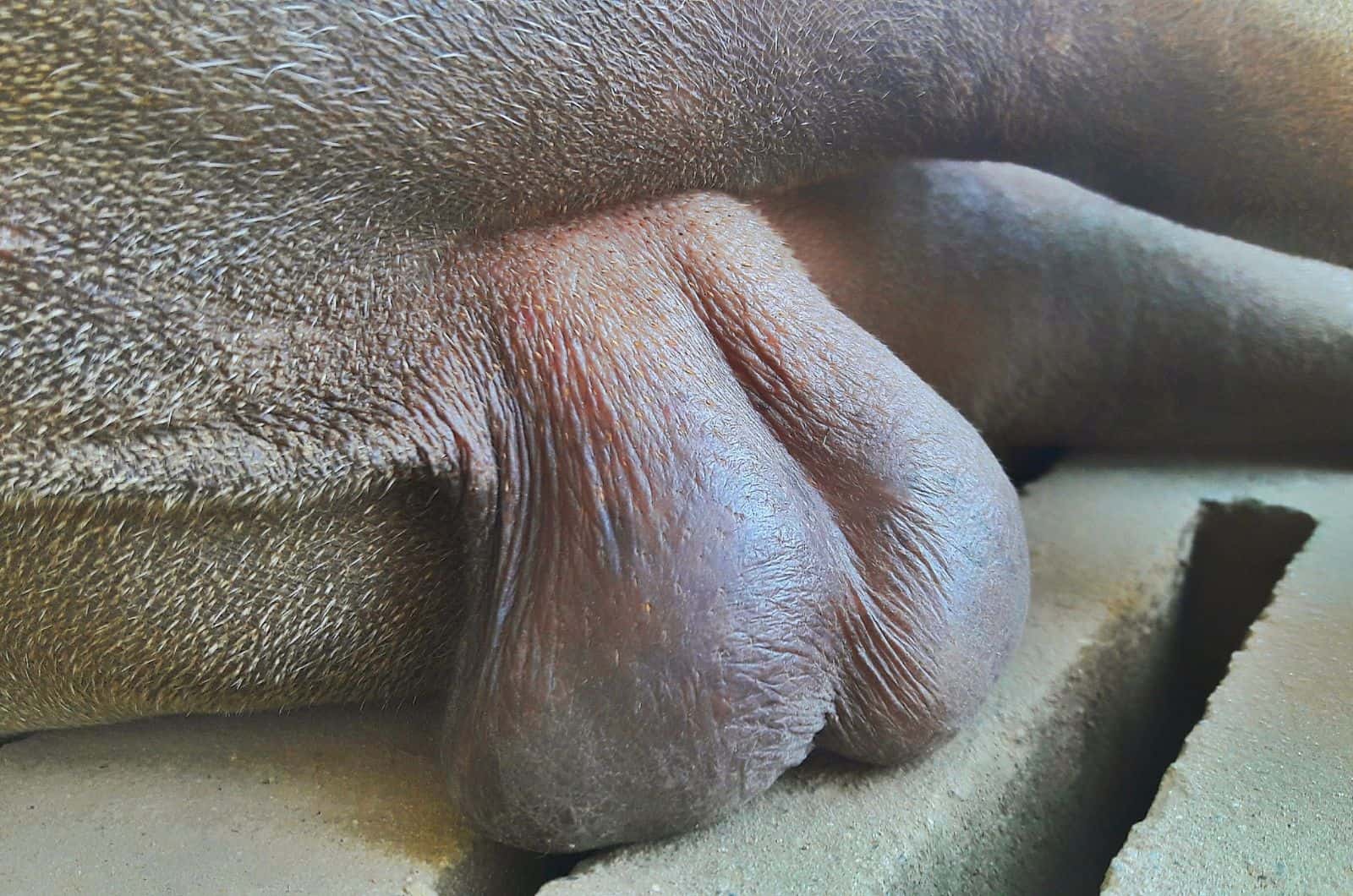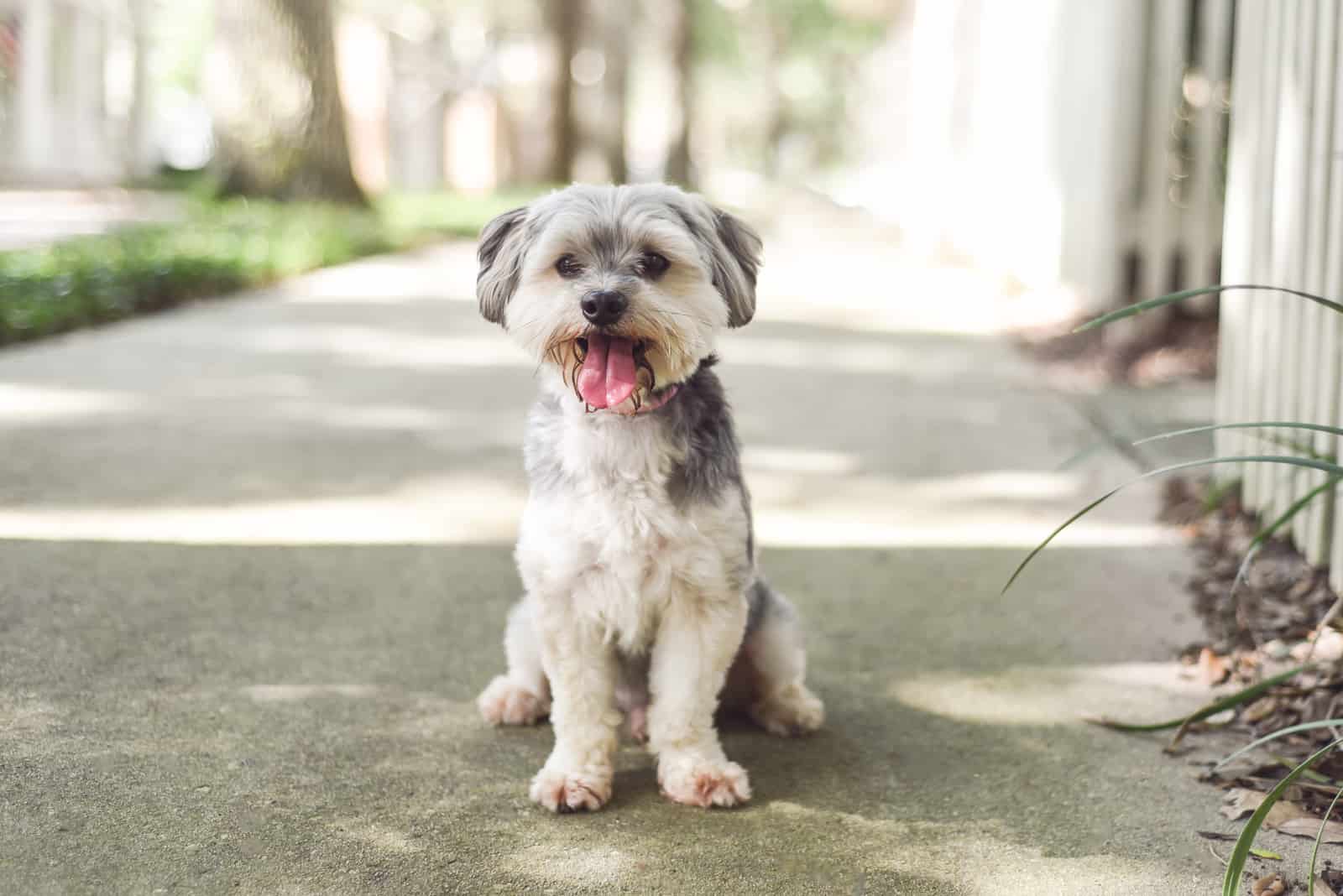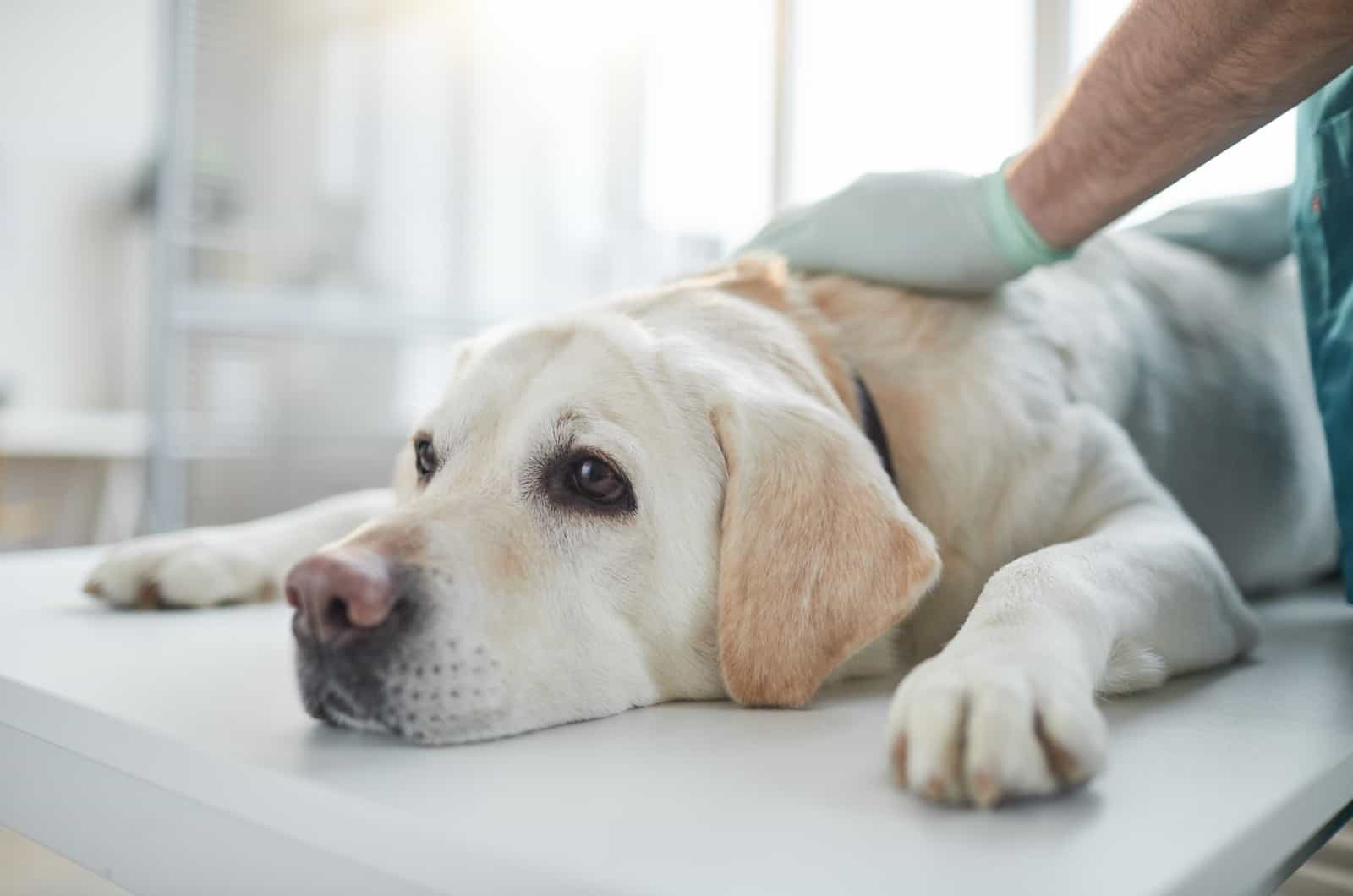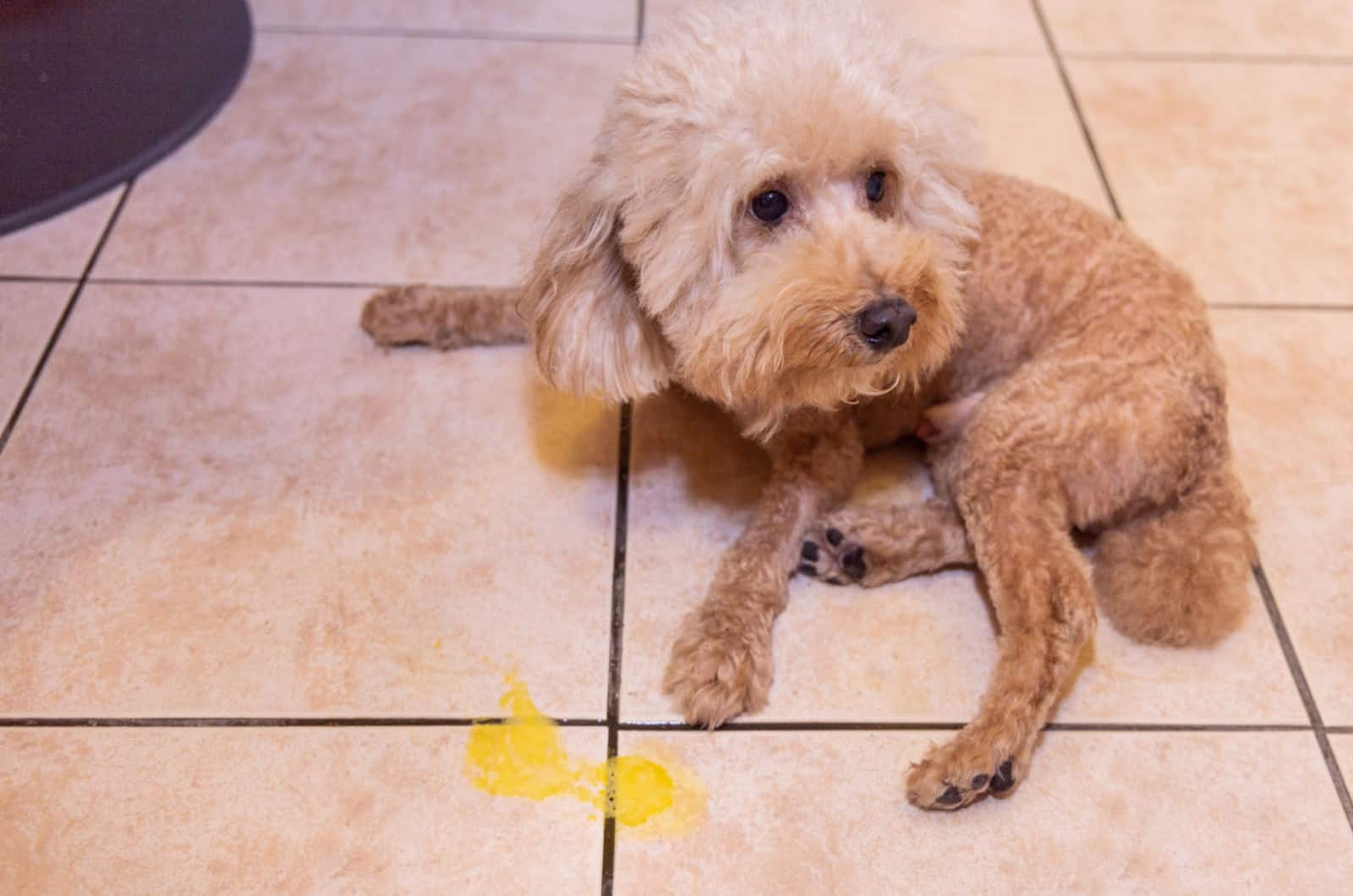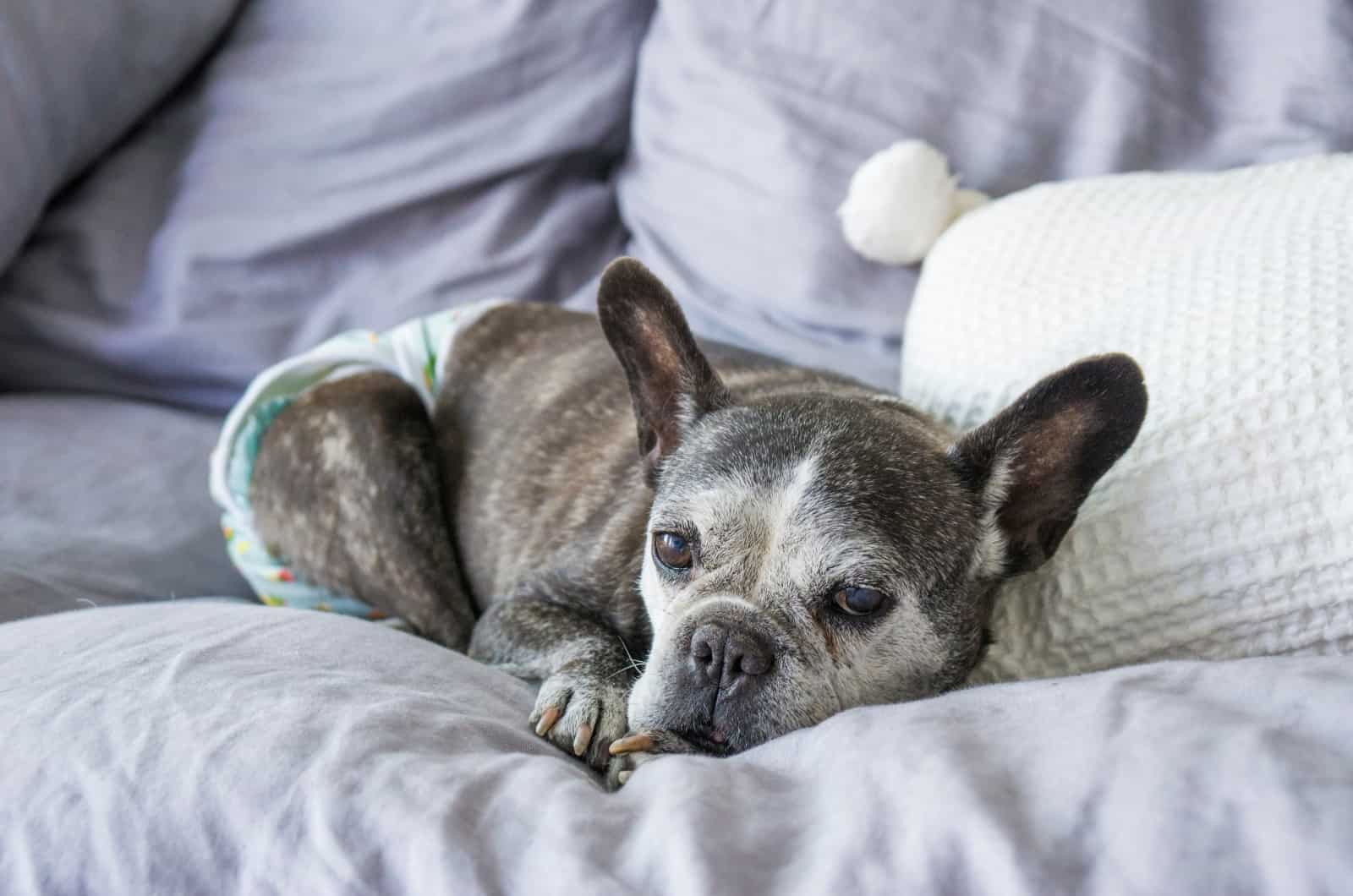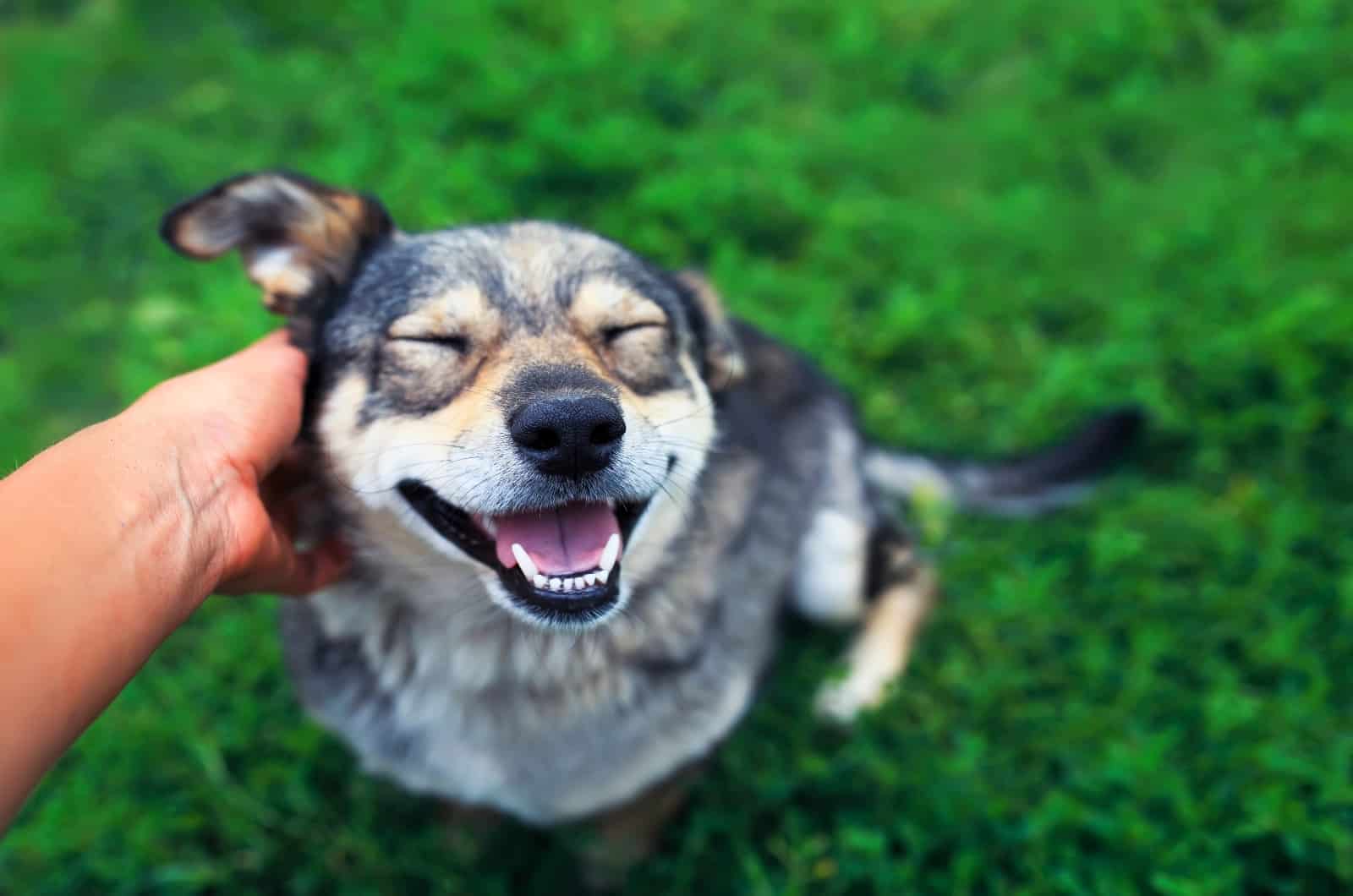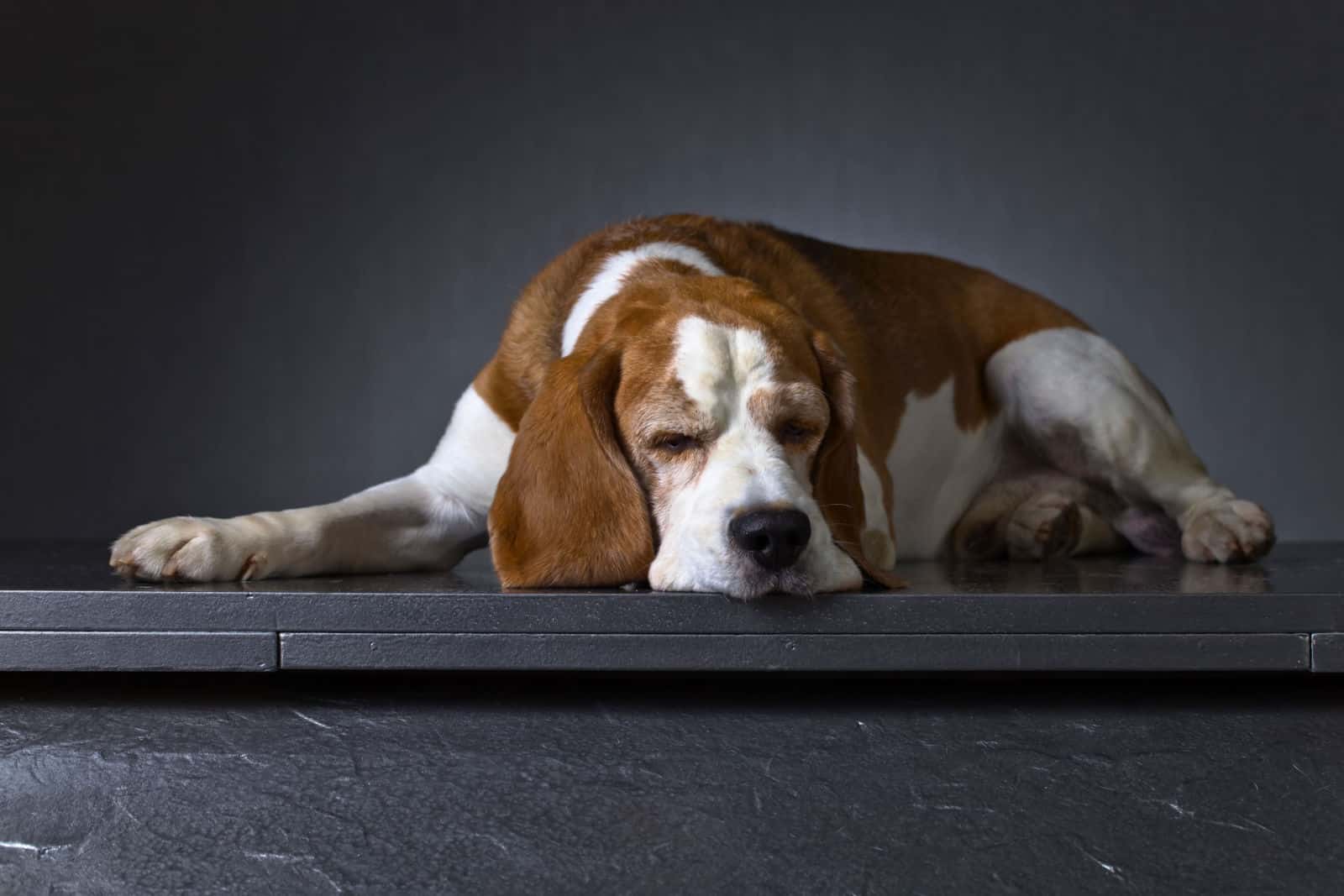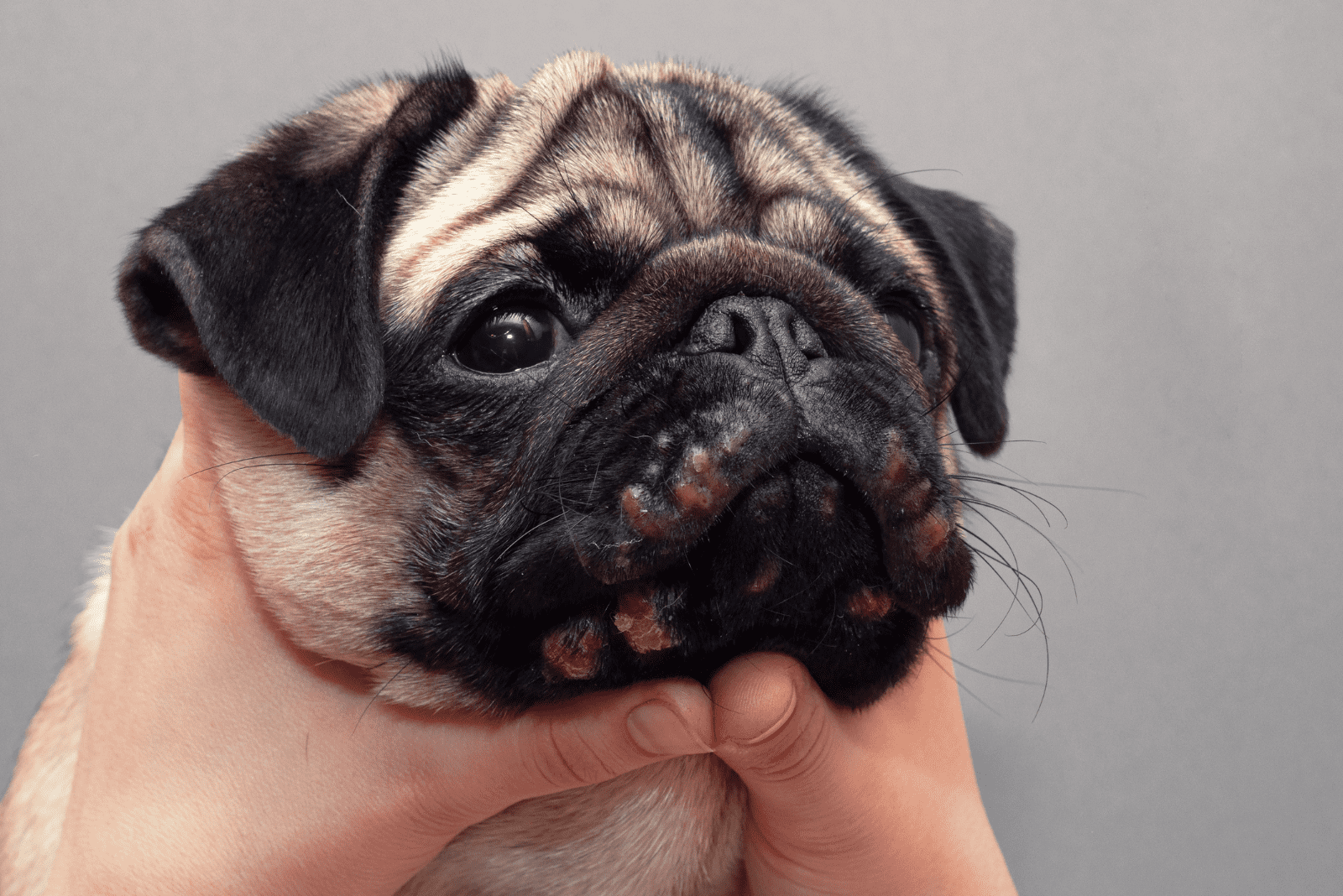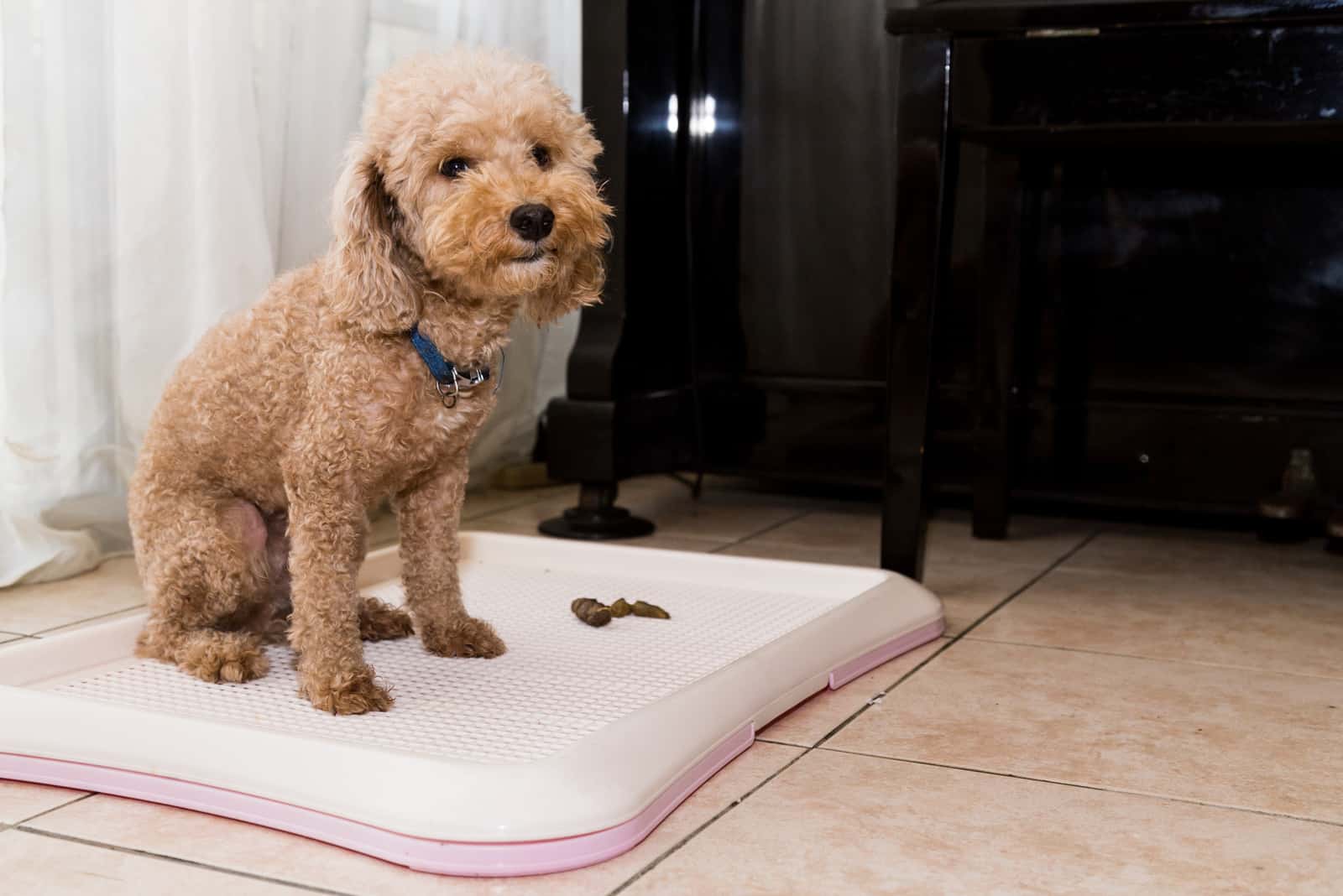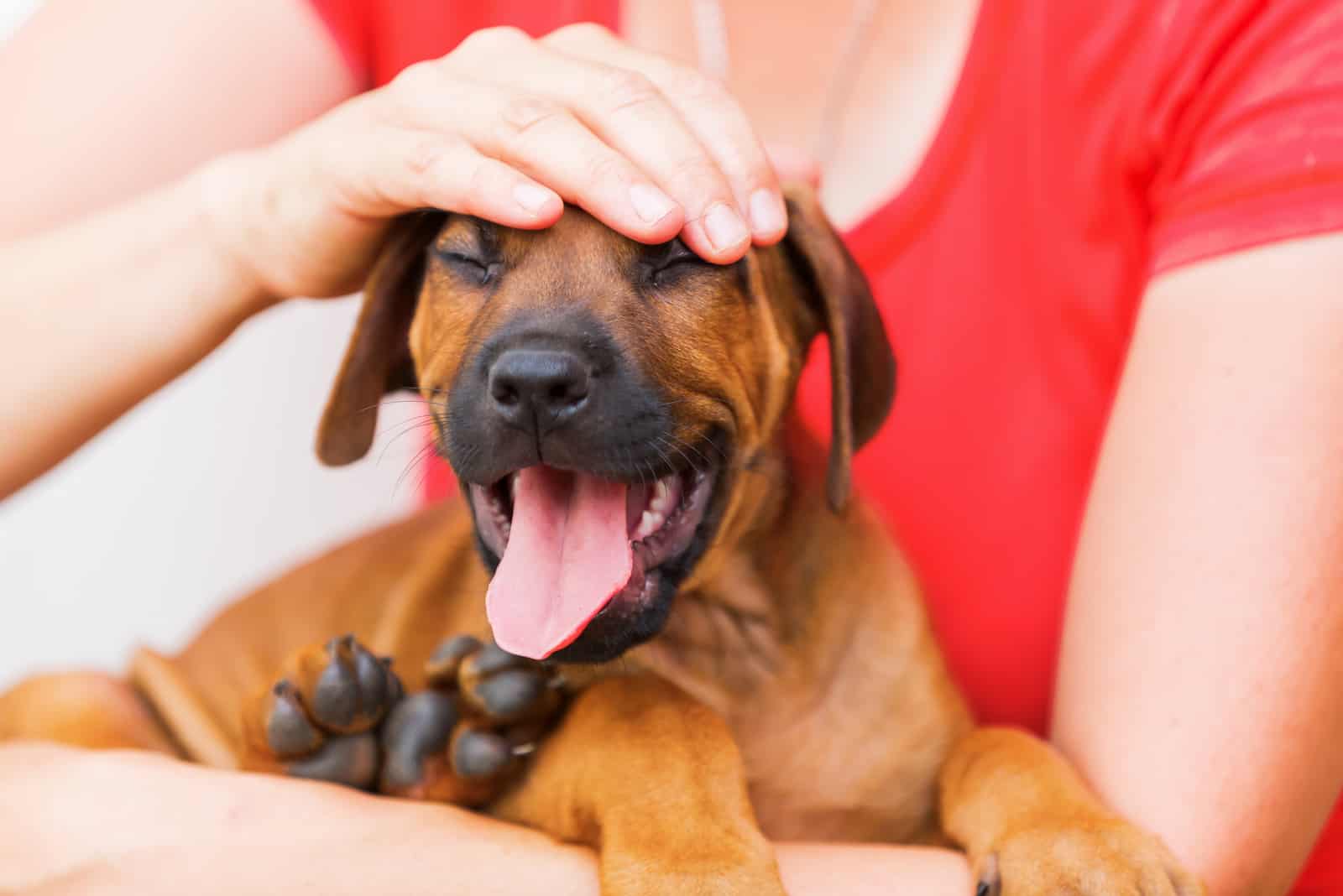Some dog owners who cannot get their much-needed sleep because their dogs snore can be poop out of luck. My heart goes out to those who have a Frenchie or Pug sleeping on their bed without an answer on how to stop a dog from snoring.
Maybe you are completely synced with your snoring dog, so you both keep your partners or neighbors awake throughout the night. In that case, there is no point in reading this article. Instead, just enjoy your sleep apnea.
The rest of the people should stick around and read all the tips I have for them. This is how to stop a dog from snoring.
Determining Whether Something Can Be Done At All
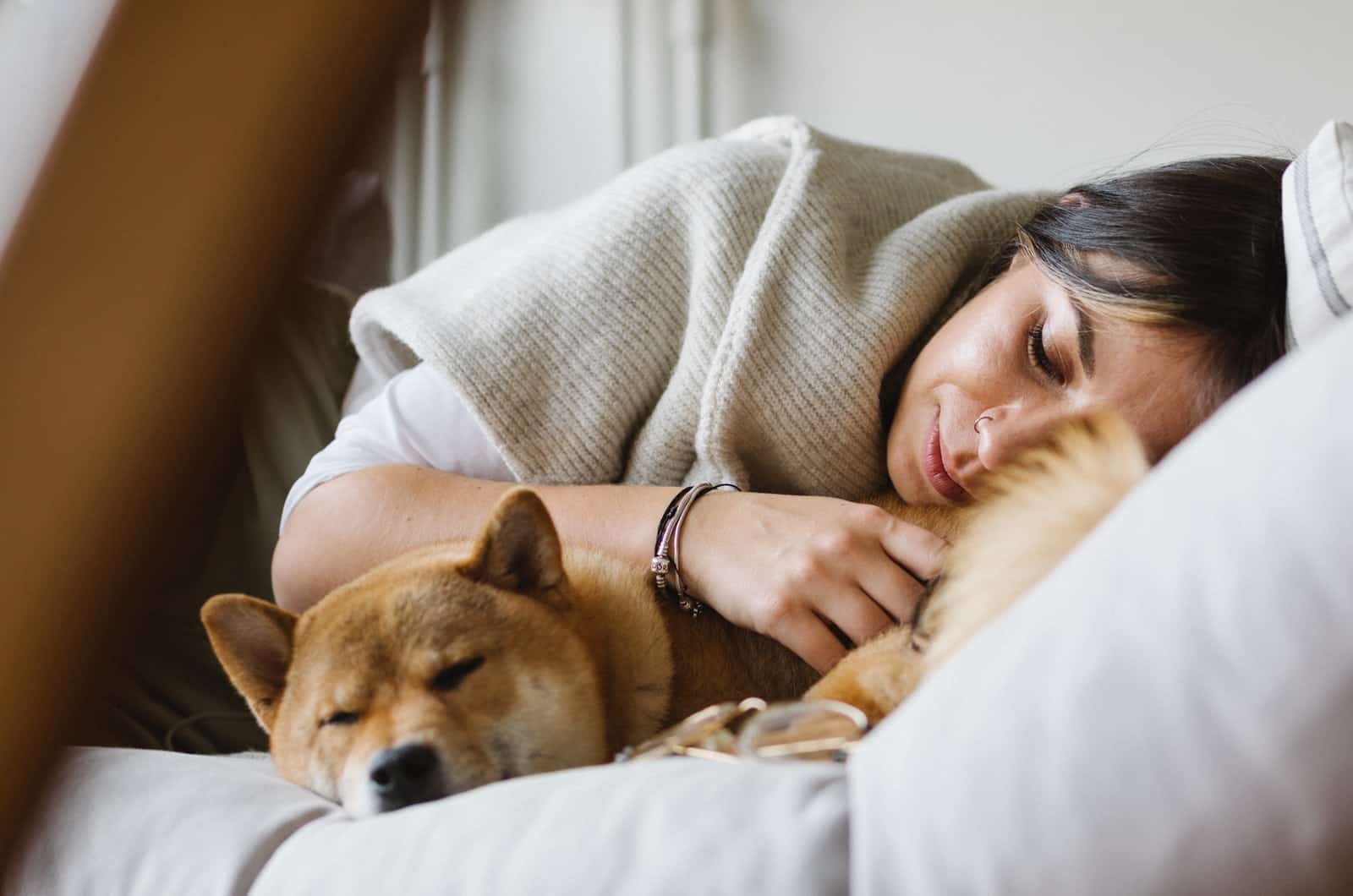
Being unable to do anything about your dog snoring is pretty much a death sentence for your sleep. The only option that will provide some shut-eye are earplugs. It is much easier than figuring out what can be done to your dog to prevent snoring.
What scenarios fit this bill? Well, if your dog is one of the brachycephalic breeds, there is little you can do. The second is if your dog had surgery in the nostrils, larynx, or has sleep apnea.
The latter is barely ever seen in dogs, while the former two are frequent in brachycephalic breeds.
The blockage of airways by any internal structure can be the cause of snoring, but veterinarians agree that snoring can be a symptom of more serious secondary conditions like hypothyroidism or obesity.
It is clear that snoring presents more of a problem than simply keeping you awake at night. Brachycephalic dogs, like Pugs, Frenchies, or Boxers are essentially genetically “engineered” to snore, while hosting a number of anatomical irregularities of the respiratory system.
Chances are you will not be able to do anything about snoring in those breeds, but a visit to the vet is a smart move to rule out any injury, inflammation, allergies, or infection that is obstructing the windpipe. This article should be useful if you decide to test your dog for allergies.
If snoring is something that started out of the blue or worsened in terms of frequency or loudness, then it is definitely wise to get your dog checked-out as soon as possible. Now that we know what can cause snoring, let us see what can suppress or stop it.
Sleeping Positions Affect Airflow

There are as many sleeping poses for a dog as there are dog breeds. Some prefer sleeping on their back, some on the side, and others in a curled-up position. The back-sleepers are probably the worst snorers.
Sleeping on the back does extend the dog’s trachea and larynx, but the tongue disrupts proper breathing. Due to the stretch of the larynx, the tongue retracts back into the throat, creating an obstruction that can produce that low-pitched snore.
Fixing this is rather easy. You can reposition your dog’s body to the side and straighten the neck with a pillow under it. This will leave the tongue on the side, providing plenty of room for air to flow freely.
Another position that works on most dogs is the curled-up pose. It is as natural as it gets, seeing how most dogs sleep that way. It allows the tongue to remain flat with the lower teeth, fixing the issue that a back-lying position usually creates.
If your dog sleeps with you on the bed (although it should not), then you might have better luck with the side-sleeping position. Those whose dogs sleep in dog beds, can use the circular shape of the bed to reinforce the curled-up (doughnut) sleeping position.
Here are some of our picks for best Bulldog beds that might work for your Frenchie, Pug, Shih Tzu, or other short-nosed canines to get rid of the back-sleeping habit. You are welcome if it works.
Dry Air Promotes Snoring

Many people disregard the air humidity in their bedroom. Perhaps you are an avid snorer, and your family is getting frustrated with the increasingly higher volume every night. Well, your dog might have the same issue.
Hitting two birds with one stone includes humidifying the air in the room. You think it is too good to be true? I tried and tested it on both my dogs and me, and here is an explanation why it does work.
Mucous membranes in a dog’s nose have two main roles. One is to warm up the air, and the other is to humidify it for better oxidation. When the air is too dry, the airflow itself can dry out the mucosa (mucous membrane), leading to inflammation if exposed to it for long periods of time.
Inflammation always restricts the airflow due to swelling, which translates into a snoring dog. Humidifiers are an inexpensive way to potentially fix a problem caused by dry air.
Allergies And Dry Air Go Together
No matter how hard you try to keep your house clean, there will always be some particles that are impossible to get rid of. Adding to the troubles, dry air in a room will make it much easier to excite the particles so that they come flying through the air.
Dogs that are allergic to mite dust, pollen, mold, or chemical products such as detergents or softeners can have quite severe allergic reactions if directly exposed to them. Sleeping on a freshly washed bed cloth or duvet your dog is allergic to might be the reason behind snoring.
Just like with dry air, the allergy-mediated inflammation will cause swelling of the tissue of the nasal passage and/or throat. Needless to say, it will create an obstruction that will lower the airflow and hit all the wrong spots of the mucosa to produce that mind-numbing snoring sound.
If your dog is not allergic to the detergent or softener you use, cleaning the bed sheets regularly can reduce or eliminate snoring by removing the dust and other allergens that quickly accumulate on the surface.
Another good practice is having filters on the windows so that environmental allergens cannot enter the room in high concentration. The period when the concentration of pollen and outside dust is highest is in the afternoon, so that would be the ideal timeframe to open the windows.
Obesity Is More Than Belly Fat
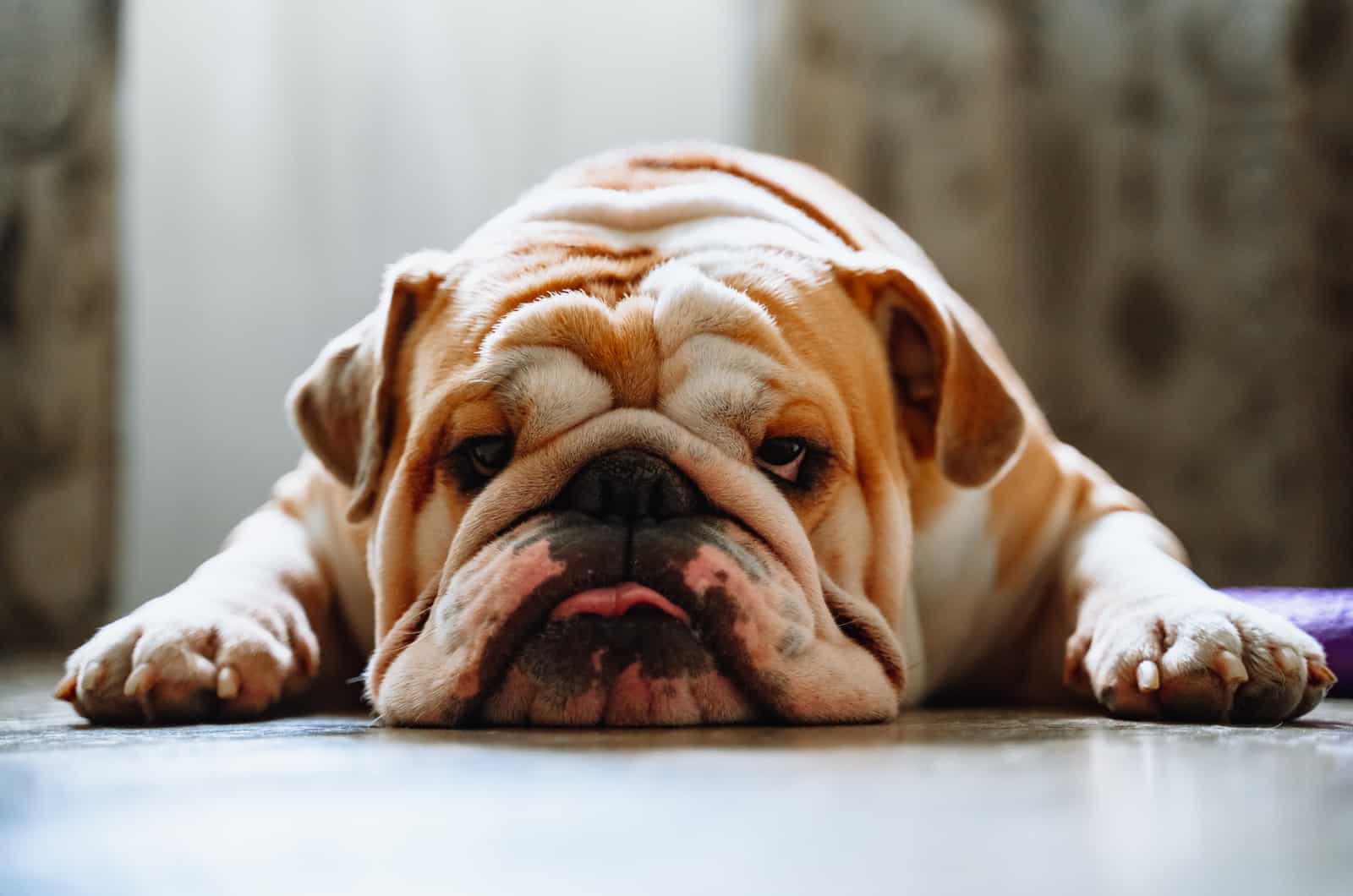
Small breeds are more prone to obesity than large dogs, but dog size is irrelevant if you have an easy treat hand, feed your dogs heavy meals, or give them table scraps.
Fat accumulation on the cartilage and around airways can put pressure on the trachea, larynx, and even the nose, so lowering the calorie intake to maintain an ideal body weight for your dog is crucial in lowering the chance of snoring trouble.
If you are unsure about how to proceed in terms of weight-regulation diets, consult an animal nutritionist or veterinarian for proper guidelines, nutrient balance, and regular exercise to promote a healthy lifestyle.
Your dog will certainly benefit from the minimal amount of excess fat in terms of reducing airway obstruction and overall energy levels and health. Here is a recipe for some energy-packed and healthy sweet potato treats for your dog.
Having a Frenchie means more anatomical issues that promote snoring, so consider putting your brachycephalic canine on a raw diet to curb needless weight gains and obesity.
Teeth Are A Silent Cause Of Snoring
Proper oral hygiene reduces the chance of infection in your dog. A dog that has healthy teeth has a vastly smaller risk of periodontitis. Untreated gum disease can facilitate bacterial infection to penetrate deep into the body, reaching the respiratory system.
Where there is infection, there will be inflammation and discharge accumulation, leading to airflow obstruction and the dreaded snoring. Always consult your veterinarian before trying home remedies or buying off the counter medication.
The right antibiotic or antifungal drug will have a higher chance of success if the pathogens do not develop into a drug-resistant form. Tooth abscesses or injury can quickly become infected, so check for redness, swelling, or foul odor from your dog’s mouth regularly.
Hypothyroidism And Tumors
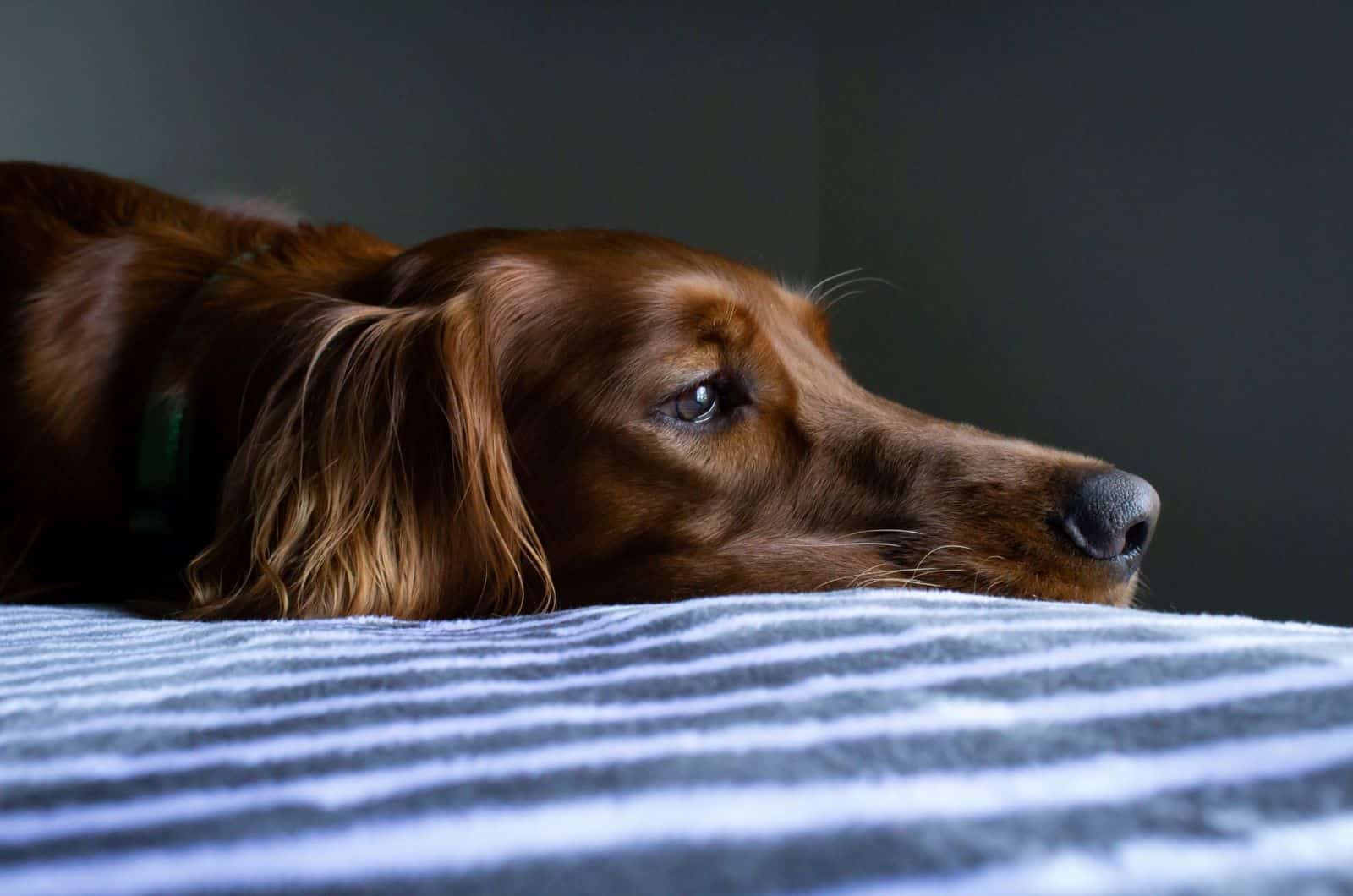
An underproducing thyroid gland can create a hormonal imbalance that can lead to metabolic irregularities, a compromised immune system, weight gain, and susceptibility to allergens.
Whether the cause behind it is autoimmune or cancer, it will seriously reduce your dog’s ability to cope with illness. That means infections, inflammation, or poor overall health are more likely. This, in turn, includes snoring as one of the potential problems.
Benign and malignant cancers can form tumors in and around your dog’s throat, pharynx, larynx, trachea, and nasal passages, resulting in direct blockage of the airways. Regular check-ups with your DVM can help an early diagnosis and low chances of complications.
In both these cases, snoring is an afterthought, seeing the gravity of both conditions. Luckily, hypothyroidism is easily treatable with synthetic hormonal therapy, but tumors require more comprehensive diagnostic testing and appropriate sequences of treatment.
Regular physical examinations and laboratory tests, preceded by your watchful eye and knowledge of associated symptoms, is essential for a healthy dog and peace of mind.
Conclusion
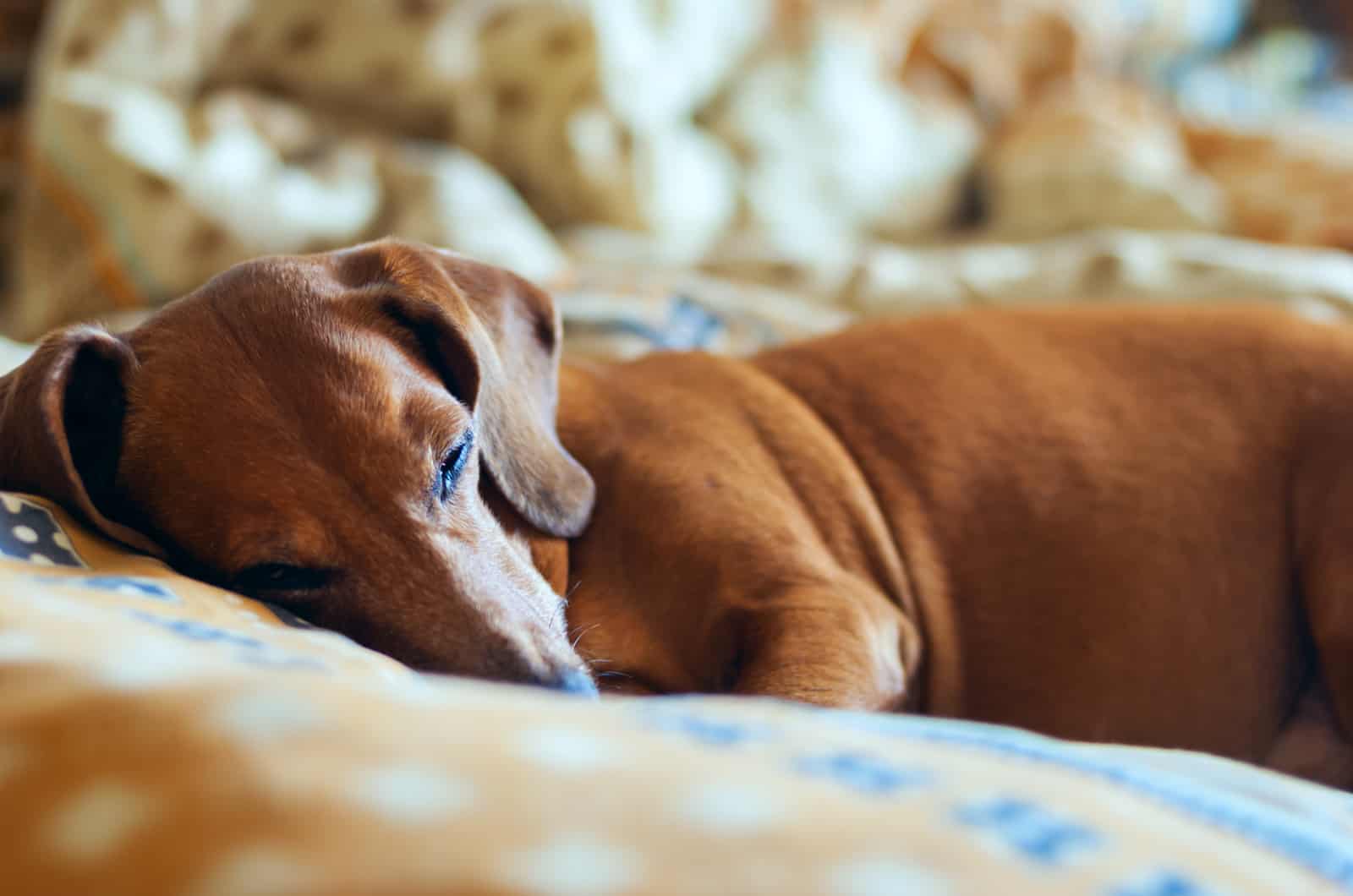
These are some of the more conclusive ways on how to stop a dog from snoring, but you might figure out some unknown cause and solution. If you do, share your findings with us. In case you need a quick fix, this article will probably help you sleep better.
First-time dog owners rarely consider snoring when getting a cute brachycephalic dog, so I advise you to be aware of the fact they snore a lot. The bigger the breed, the more disruptive the snore-fest.
Lastly, keep your dog in good shape and focus on doing the best you can in terms of physical activity, diet and vet check-ups. The rest is in the hands of genetics and luck.

